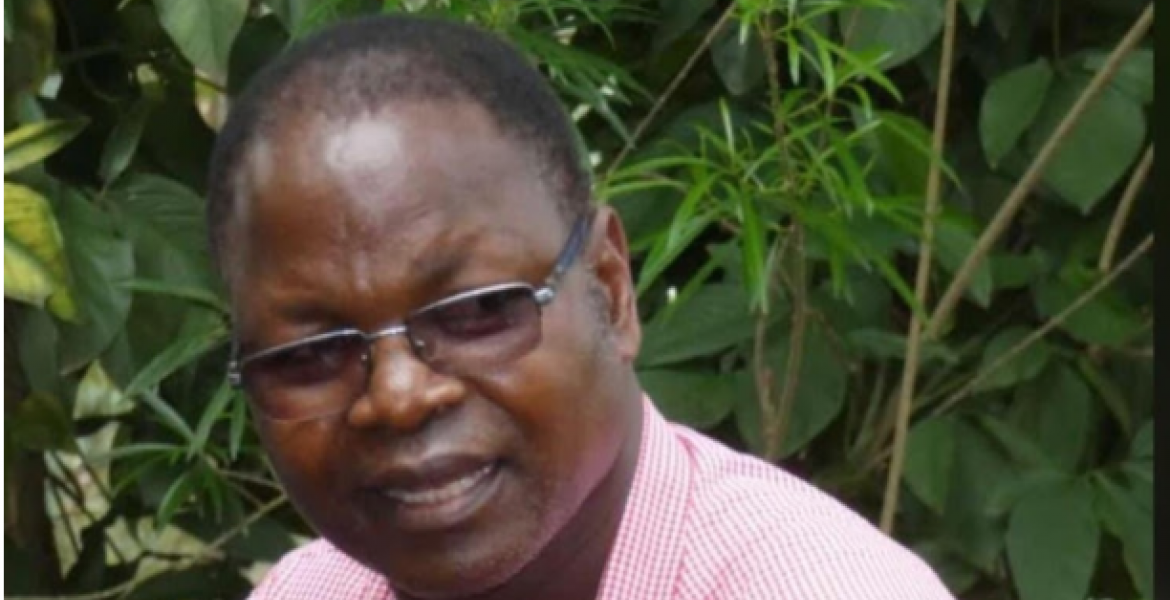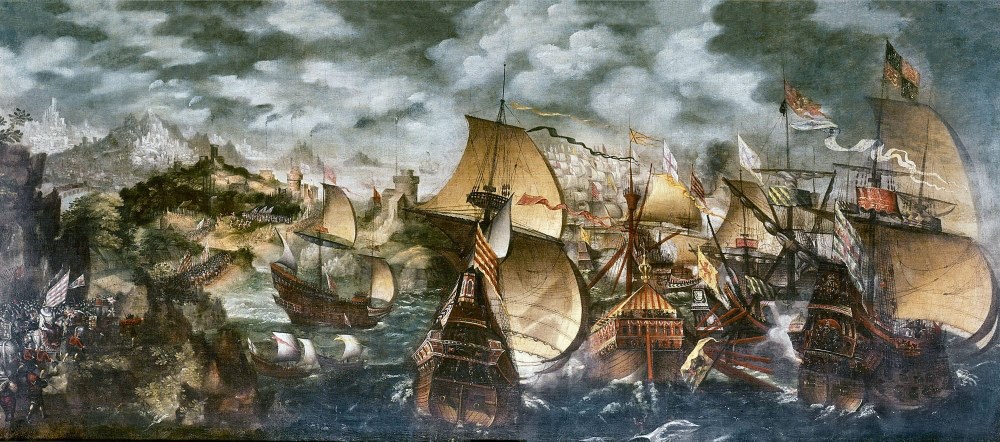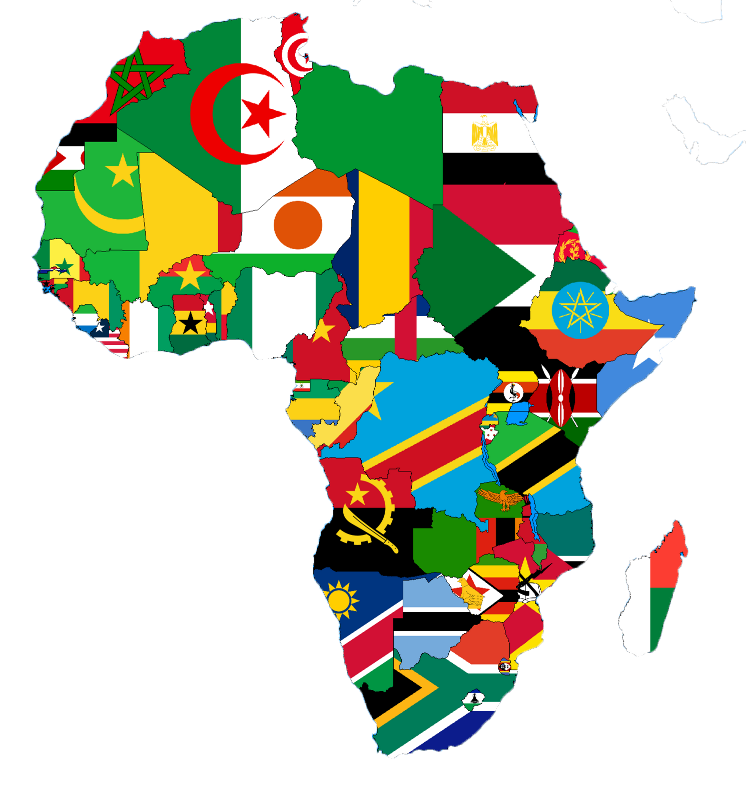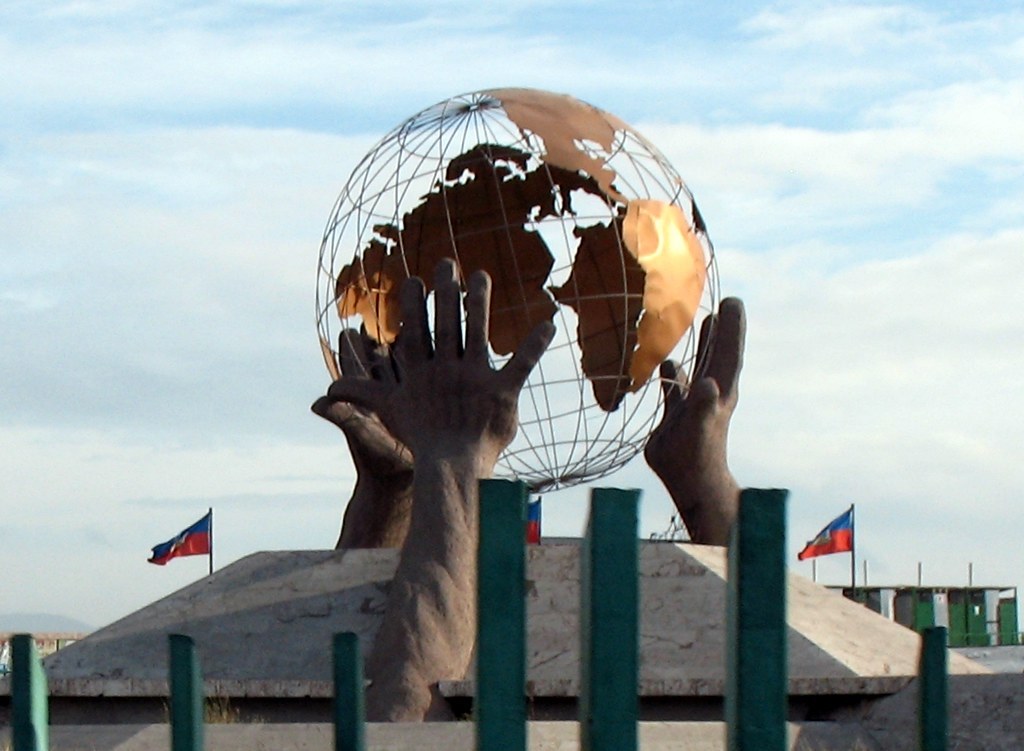Akugizibwe, P. (N/A, July 23). "Debt is a cleverly managed reconquest of Africa". Thomas Sankara.
https://www.thomassankara.net/debt-is-a-cleverly-managed-reconquest-of-africa-t
homas-sankara-by-paula-akugizibwe/?lang=en
Césaire, A., & Kelley, R. D. G. (2000). Discourse on Colonialism (J. Pinkham, Trans.). Monthly Review Press.
https://monthlyreview.org/product/discourse_on_colonialism/
Cheeseman, N., & Fisher, J. (2019, November 2). How colonial rule committed Africa to fragile authoritarianism. Quartz. https://qz.com/africa/1741033/how-colonial-rule-committed- africa-to-fragile-auth oritarianism-2/amp/
Colon, A. (2018). Who and What is Amazigh? Self-Assertion, Erasure, and Standardization.
https://digitalcollections.sit.edu/cgi/viewcontent.cgi?article=4021&context=isp_collection
Ferraro, V. (2008), pp. 58-64. Dependency Theory: An Introduction (Routledge ed.). Giorgio Secondi. https://www.mtholyoke.edu/acad/intrel/depend.htm
Freire, P. (1968). Pedagogy of the Oppressed. Myra Ramos. https://www-daw- ovx.omnivox.ca/cvir/ddle/VisualiseDocument.aspx?C=DAW& E=P&L=ANG&Ref=20220418113616&Info=dVRqNFB0Z1kvNkFKTTlkUXNS TlZyeEJ3a1R4ajhoWkRsWEppaWJwYm4veTBzTnNUUzVOVGZMOTBjVXh
GTk9SamNqRFNmWWxKR0ltejJoN1QwRFJQeXpSUm1BTXY4L0RkLy9aUU
5laWp1bVNZRzY4aUds
Giroux, H. (2014, March 28). Neoliberalism, Youth, and Social Justice. YouTube. https:// www.youtube.com/watch?v=KW5FRuMkQ6g
Harsch, E. (2013, September). The legacies of Thomas Sankara: a revolutionary experience in retrospect. Review of African Political Economy, 40(137), 358-374. http:// dx.doi.org/10.1080/03056244.2013.816947
Koch, D. (2018, March 11). Map of minerals in the DRC (BBC, 2012). | Download Scientific Diagram. ResearchGate. https://www.researchgate.net/figure/Map-of-minerals-in-the-DRC- BBC-2012_fig 1_324443436
LIRS | Quotes About Immigrants and Refugees | From Presidents to Poets. (n.d.). Lutheran Immigration and Refugee Service | LIRS. Retrieved April 20, 2022, from https://www.lirs.org/ quotes-immigrants-refugees
Mulinge, M. M., & Lesetedi, G. N. (1998, December). Interrogating Our Past: Colonialism and Corruption in Sub-Saharan Africa. African Journal of Political Science. https://www.jstor.org/ stable/23493651
Ocheni, S., & Nwankwo, B. C. (2012, June 14). Analysis of Colonialism and Its Impact in Africa. Cross-Cultural Communication. http://dx.doi.org/10.3968/ j.ccc.1923670020120803.1189
Unesco Institut de statistique. (n.d.). République Démocratique du Congo. Retrieved April 18, 2022, from http://uis.unesco.org/fr/country/cd




 "Oppression is but another name for irresponsible power, if history is to be trusted" -William Pinkney. An example of oppression is colonialism. Indeed, the main reason for oppression in colonial history is a country obtaining more power than another and using this power to invade another country for economic and political reasons. When we think of colonialism, we usually think of it as something that has happened in the past, but it still affects the countries under the colonialists' reign. In 1884, the Berlin Conference took place, where many European countries decided to divide African territories with the impression that no one was inhabiting them. The division of African colonies resulted in the start of colonialism in Africa. The post-colonialism effects that we will be observing prove that colonialism was a form of oppression. First of all, although many people believe that the effects of colonization are no longer apparent in society, post-secondary products still exist to this day. An example is the dependency theory. The dependency theory is seen as an explanation for the disparity between the economy of western countries and the countries their resources are coming from (Ferraro, 1996). The Democratic Republic of Congo is known for its abundance of natural resources that make up many materials that we may use daily, including copper, gold, diamonds, cobalt, and oil (Koch, 2018). A country's wealth is based on which resources acquire the most wealth. The more natural resources a country has, the more wealth it can achieve, right? Not for most African countries. African countries lack the wealth and resources to export their materials. Western governments know this and take advantage of this situation by offering a value less than what the materials are worth in return for exploiting African raw materials. Through this system, African countries have developed a dependence on raw material exports because they have no other options. To keep someone in a state where they are dependent on your aid because they cannot fend for themselves is to keep them in a condition of oppression. Many African leaders have tried using protectionism to liberate their natural resources from the western market. Protectionism is imposing taxes on specific goods or products to protect a country's domestic resources. A firm believer in this act was Thomas Sankara, president of Burkina Faso from 1983 to 1987. Through the acquisition of debt, Africans are kept under imperialistic control, making them financially enslaved people, Sankara preached. By calling for the rejection of debt repayment, Sankara practices overcoming oppression by leading his people towards their liberation and not submitting to the oppressor (Harsch, 2013). In his book Pedagogy of the Oppressed, Paulo Freire expresses that oppressed people can regain their humanity in the liberation struggle with the help of fellow oppressed people (Freire, 1968, #44). In Discourse of Colonialism, Aime Cesaire details the relationship between the colonized and the colonizer, stating that the colonizer turns the indigenous colonized man into an instrument of production (Césaire & Kelley, 2000, #42). A manifestation of this relationship is seen in the acquisition of natural resources. Miners in Congo are not seen as human but as machines, disregarding any of their human properties. That is not only the effect of imperialism but also of the dependency theory. In Discourse of Colonialism, Aime Cesaire details the relationship between the colonized and the colonizer, stating that the colonizer turns the indigenous colonized man into an instrument of production (Césaire & Kelley, 2000, #42). A manifestation of this relationship is seen in the acquisition of natural resources. Miners in Congo are not seen as human but as machines, disregarding any of their human properties. That is not only the effect of imperialism but also of the dependency theory.
"Oppression is but another name for irresponsible power, if history is to be trusted" -William Pinkney. An example of oppression is colonialism. Indeed, the main reason for oppression in colonial history is a country obtaining more power than another and using this power to invade another country for economic and political reasons. When we think of colonialism, we usually think of it as something that has happened in the past, but it still affects the countries under the colonialists' reign. In 1884, the Berlin Conference took place, where many European countries decided to divide African territories with the impression that no one was inhabiting them. The division of African colonies resulted in the start of colonialism in Africa. The post-colonialism effects that we will be observing prove that colonialism was a form of oppression. First of all, although many people believe that the effects of colonization are no longer apparent in society, post-secondary products still exist to this day. An example is the dependency theory. The dependency theory is seen as an explanation for the disparity between the economy of western countries and the countries their resources are coming from (Ferraro, 1996). The Democratic Republic of Congo is known for its abundance of natural resources that make up many materials that we may use daily, including copper, gold, diamonds, cobalt, and oil (Koch, 2018). A country's wealth is based on which resources acquire the most wealth. The more natural resources a country has, the more wealth it can achieve, right? Not for most African countries. African countries lack the wealth and resources to export their materials. Western governments know this and take advantage of this situation by offering a value less than what the materials are worth in return for exploiting African raw materials. Through this system, African countries have developed a dependence on raw material exports because they have no other options. To keep someone in a state where they are dependent on your aid because they cannot fend for themselves is to keep them in a condition of oppression. Many African leaders have tried using protectionism to liberate their natural resources from the western market. Protectionism is imposing taxes on specific goods or products to protect a country's domestic resources. A firm believer in this act was Thomas Sankara, president of Burkina Faso from 1983 to 1987. Through the acquisition of debt, Africans are kept under imperialistic control, making them financially enslaved people, Sankara preached. By calling for the rejection of debt repayment, Sankara practices overcoming oppression by leading his people towards their liberation and not submitting to the oppressor (Harsch, 2013). In his book Pedagogy of the Oppressed, Paulo Freire expresses that oppressed people can regain their humanity in the liberation struggle with the help of fellow oppressed people (Freire, 1968, #44). In Discourse of Colonialism, Aime Cesaire details the relationship between the colonized and the colonizer, stating that the colonizer turns the indigenous colonized man into an instrument of production (Césaire & Kelley, 2000, #42). A manifestation of this relationship is seen in the acquisition of natural resources. Miners in Congo are not seen as human but as machines, disregarding any of their human properties. That is not only the effect of imperialism but also of the dependency theory. In Discourse of Colonialism, Aime Cesaire details the relationship between the colonized and the colonizer, stating that the colonizer turns the indigenous colonized man into an instrument of production (Césaire & Kelley, 2000, #42). A manifestation of this relationship is seen in the acquisition of natural resources. Miners in Congo are not seen as human but as machines, disregarding any of their human properties. That is not only the effect of imperialism but also of the dependency theory.  Second of all, the education system in most African countries is heavily influenced by colonialism practices. In 2018, the higher education schooling rate in RDC was 33% (Unesco, n.d.). The lack of education in most African countries is an additional explanation for why the disparity between western countries and underdeveloped countries is so grand. The more a country's citizens have access to education, the more they can think critically and contribute to their country's wealth. Usually, in schools, the banking method of education, where teachers are authoritarians and students memorize the information given to them without any usage of critical thought, is used, This method not only encourages oppression but ignorance. In the book Empowering Education, Ira Shor claims that the only way that knowledge is power is for those who can use it to change their conditions. If students are taught using a method where critical thought is limited and almost nonexistent, how will they be able to obtain liberation through education? Another sector of the education system that's negatively affected by colonization is students' sense of identity. In a research paper written by Alexis Colon, Colon explores the erasure of the Amazigh people, the indigenous people of North Africa. In an interview conducted by Colon, interviewees were asked if they could read or speak Tifinagh, a native Berber language. Some agreed that it was essential to know, and others claimed it was a thing of the past (Colon, 2018, #15). It's interesting to note that the education system that is practiced in the country is so influential that their identification lies with a colonized version of their culture and not their native culture. As if cultural confusion isn't enough, the imposition of western ideology is heavily practiced. In a lecture to a Knowledge (Humanities) course, Mariam Sambe shared that students used most of the textbooks fabricated in France in Senegal. One day she noticed a question about strawberries. Strawberry production is not typical in Senegal, so she had no clue what it was (Mariam Sambe, personal communication, 2022). What can be observed in Mariam's story is that post-colonial education has a tone of a western superiority complex. Instead of learning about experiences she had shared knowledge of, she learned about cultural practices that didn't belong to her because that was what was assumed to be better. We learned through bell hooks that education is one of the only pathways towards liberation, but when done right. If education in post-colonial territories wasn’t used as a weapon of assimilation, students could acquire critical consciousness making it easier for them to attempt to liberate themselves. Finally, another effect of colonialism that we can observe nowadays is the corruption in African politics. Understanding what the colonial rulers did will help contextualize the development of politics in Africa. Upfront, a principle established by colonial governments in Africa was called the "Big Man Rule". Before this establishment, societies in Africa weren't big centralized states; they weren't authoritarian either. The fact that it was divided in small groupings means that the ruler's power of a specific group wouldn't go that far and if the residents weren't happy, they could move towards different sets.
Second of all, the education system in most African countries is heavily influenced by colonialism practices. In 2018, the higher education schooling rate in RDC was 33% (Unesco, n.d.). The lack of education in most African countries is an additional explanation for why the disparity between western countries and underdeveloped countries is so grand. The more a country's citizens have access to education, the more they can think critically and contribute to their country's wealth. Usually, in schools, the banking method of education, where teachers are authoritarians and students memorize the information given to them without any usage of critical thought, is used, This method not only encourages oppression but ignorance. In the book Empowering Education, Ira Shor claims that the only way that knowledge is power is for those who can use it to change their conditions. If students are taught using a method where critical thought is limited and almost nonexistent, how will they be able to obtain liberation through education? Another sector of the education system that's negatively affected by colonization is students' sense of identity. In a research paper written by Alexis Colon, Colon explores the erasure of the Amazigh people, the indigenous people of North Africa. In an interview conducted by Colon, interviewees were asked if they could read or speak Tifinagh, a native Berber language. Some agreed that it was essential to know, and others claimed it was a thing of the past (Colon, 2018, #15). It's interesting to note that the education system that is practiced in the country is so influential that their identification lies with a colonized version of their culture and not their native culture. As if cultural confusion isn't enough, the imposition of western ideology is heavily practiced. In a lecture to a Knowledge (Humanities) course, Mariam Sambe shared that students used most of the textbooks fabricated in France in Senegal. One day she noticed a question about strawberries. Strawberry production is not typical in Senegal, so she had no clue what it was (Mariam Sambe, personal communication, 2022). What can be observed in Mariam's story is that post-colonial education has a tone of a western superiority complex. Instead of learning about experiences she had shared knowledge of, she learned about cultural practices that didn't belong to her because that was what was assumed to be better. We learned through bell hooks that education is one of the only pathways towards liberation, but when done right. If education in post-colonial territories wasn’t used as a weapon of assimilation, students could acquire critical consciousness making it easier for them to attempt to liberate themselves. Finally, another effect of colonialism that we can observe nowadays is the corruption in African politics. Understanding what the colonial rulers did will help contextualize the development of politics in Africa. Upfront, a principle established by colonial governments in Africa was called the "Big Man Rule". Before this establishment, societies in Africa weren't big centralized states; they weren't authoritarian either. The fact that it was divided in small groupings means that the ruler's power of a specific group wouldn't go that far and if the residents weren't happy, they could move towards different sets.  Unfortunately, these systems weren't suitable either, the wealthiest men often dominated them. They were capable of repression in their respective grouping, but not farther. The integration of a central authority structure by colonial rule changed this system because from that point, the succeeding African presidents enjoyed more and more wielding their power over more significant territory. It is corruption because now, one "Big Man" holds the power in a great region and if the residents aren't happy, it is now a lot more complicated to move out because of the frontiers and bureaucracy. Next in order, colonialism also brought problems to the voting system. When the colonists arrived, they deprived Africans of their political rights, meaning that democracy couldn't develop on the continent. In some countries, they even stopped the election process until independence. In countries like Kenya, elections were rigged by the Europeans for a long time because they wanted their allies to dominate. The first rigged elections held on the continent were organized by Britain and France (Cheeseman, Fisher, 2019, para. 13). If these practices had something to teach African governments it’s that they could rig the votes in their favor, which led to the centralized power we can observe nowadays and to African presidents who stay president for a long time. An example of that is the last president of Algeria, Abdelaziz Bouteflika, who stayed president for 20 years by rigging election votes (1999-2019). He was ousted from power by the peaceful revolution led by the army and the Algerian population. Lastly, another thing that Europeans brought to African politics is coercion. It is the action to force someone to do something by all manners possible or to refrain him from doing something.
Unfortunately, these systems weren't suitable either, the wealthiest men often dominated them. They were capable of repression in their respective grouping, but not farther. The integration of a central authority structure by colonial rule changed this system because from that point, the succeeding African presidents enjoyed more and more wielding their power over more significant territory. It is corruption because now, one "Big Man" holds the power in a great region and if the residents aren't happy, it is now a lot more complicated to move out because of the frontiers and bureaucracy. Next in order, colonialism also brought problems to the voting system. When the colonists arrived, they deprived Africans of their political rights, meaning that democracy couldn't develop on the continent. In some countries, they even stopped the election process until independence. In countries like Kenya, elections were rigged by the Europeans for a long time because they wanted their allies to dominate. The first rigged elections held on the continent were organized by Britain and France (Cheeseman, Fisher, 2019, para. 13). If these practices had something to teach African governments it’s that they could rig the votes in their favor, which led to the centralized power we can observe nowadays and to African presidents who stay president for a long time. An example of that is the last president of Algeria, Abdelaziz Bouteflika, who stayed president for 20 years by rigging election votes (1999-2019). He was ousted from power by the peaceful revolution led by the army and the Algerian population. Lastly, another thing that Europeans brought to African politics is coercion. It is the action to force someone to do something by all manners possible or to refrain him from doing something.  During colonialism, governments would censor the media and ban public meetings, fearing a revolt. The laws applied by the colonists were absurdly unjust and when the rebellion against these laws happened, they responded with violence. They deprived the citizens of their fundamental freedoms and transmitted that way of doing to the future politicians of the continent. For example, just a few years ago, five radio journalists were arrested in Zambia for allegedly calling a government politician "useless" under Section 179 of the penal code. The code was first introduced under British colonial rule (Cheeseman, Fisher, 2019, para. 15). The silencing of the journalists is a clear example of how colonists assure that their victims are powerless, furthering their oppression.
During colonialism, governments would censor the media and ban public meetings, fearing a revolt. The laws applied by the colonists were absurdly unjust and when the rebellion against these laws happened, they responded with violence. They deprived the citizens of their fundamental freedoms and transmitted that way of doing to the future politicians of the continent. For example, just a few years ago, five radio journalists were arrested in Zambia for allegedly calling a government politician "useless" under Section 179 of the penal code. The code was first introduced under British colonial rule (Cheeseman, Fisher, 2019, para. 15). The silencing of the journalists is a clear example of how colonists assure that their victims are powerless, furthering their oppression.

























